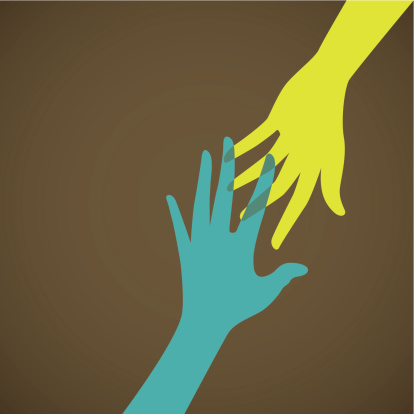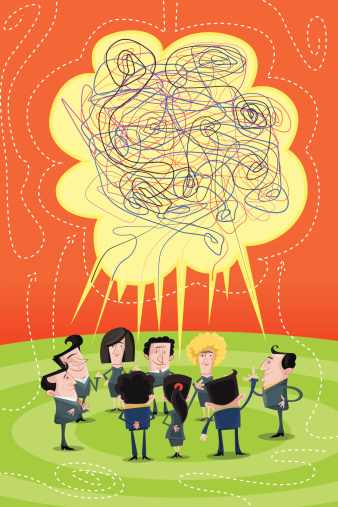
I recently attended a symposium about divorce entitled, “What’s Love Got to Do With It?” At first glance you might wonder whether we had anything to talk about. What do love and divorce have in common? Isn’t divorce the result of the loss of love? Sharing ideas with others interested in improving the divorce process reinforced my belief that love, forgiveness and compassion are the keys to divorcing well, and that divorce can indeed be a healing process.
Divorce is an all-too-common event these days. We all have friends, family members, neighbors and co-workers who have experienced becoming
unmarried. Some just barely survive and are stuck looking back at their divorce with regret and resentment. Years later they continue to bad-mouth their ex and blame their divorce for their ongoing unhappiness. Their inability to be present and available has long-term consequences for their children as well.
Most of us also know people who not only survive, but thrive in their post-divorce lives. They are somehow able to accept the major changes in their day-to-day lives and move forward. By doing so, they are healthy role models for their children and fun to be around. What accounts for these vastly different outcomes?
Personality certainly has something to do with it. Some humans are blessed with more optimistic outlooks than others. Seeing the glass half full reduces anxiety about the future. Life circumstances also play a role. Good health, steady employment, and a healthy balance sheet contribute to feeling better about what lies ahead. However, several decades of experience tells me that one factor trumps everything else in terms of one’s ability to recover from divorce … the ability to forgive.
Anger, bitterness, blame and resentment are feelings associated with the loss of a loving relationship. Grieving the loss is necessary in order to get on with life. Tara Brach, a leading western teacher of Buddhist meditation, emotional healing and spiritual awakening, who was a symposium presenter, says, “Vengeance is a lazy form of grief.” Rather than being lazy and stuck, working through one’s grief with a therapist, clergy person, or trusted friend can lead to understanding and forgiveness. Acknowledgment and forgiveness of one’s own contributions to the divorce are essential, as is forgiveness of the other person.
In the
Collaborative divorce process, our
professional team includes a neutral coach and a child specialist, both of whom assist the parties in reaching closure with regard to their marriage and defining their future co-parenting relationship.
“When you forgive somebody who has wronged you, you’re spared the dismal corrosion of bitterness and wounded pride. For both parties, forgiveness means the freedom again to be at peace inside their own skins and to be glad in each others’ presence.”
-Fredrick Buechner
 Most of my work as a lawyer involves representing clients in Collaborative divorces, and most of those cases involve the use of neutral experts to advise the couple on finances, child development, and communication/relationship dynamics. The idea is to provide them the best professional information in a non-adversarial setting so that they can make well-informed choices when resolving their divorce issues. Very often, the first of these professionals a couple visits will be their neutral coach/facilitator, whose responsibility, if hired, (among many others) will be to help couples appreciate where their communication styles get in the way of decision-making. I’m fortunate to have some wonderful professionals available to serve my clients in that role.
In recent years, the coach I work with most often is Lee Eddison, someone who embodies the art of compassionate listening, but who doesn’t hesitate to call a spade a shovel after more nuanced attempts at guidance have been unavailing. One of the assessment tools she uses is to ask each member of the couple to say three positive things about their spouse’s parenting ability. “He doesn’t suck,” doesn’t count, either. She knows that if someone can appreciate a positive contribution to the family made by someone they dislike, there’s an excellent chance they can have an interest-based conversation en route to a resolution. That’s not to say there aren’t other bumps in the road, or good reasons to end the intimate partnership. But the ability to appreciate that duality in their partner at a time when it counts–when you’d least like to–gives that appreciation a power and a significance it won’t have later. It has proven to be a fair bellwether of success in a Collaborative process.
Very few individuals who go through a divorce are all good or all bad. There’s a saying in the court system that “In criminal cases, we see bad people at their best, and in family cases we see good people at their worst.” It’s a sound bite, of course, but it’s often true. For divorcing couples who can appreciate the good things their partner has contributed, the chances of escaping the not-so-good parts without making it worse are much higher.
Most of my work as a lawyer involves representing clients in Collaborative divorces, and most of those cases involve the use of neutral experts to advise the couple on finances, child development, and communication/relationship dynamics. The idea is to provide them the best professional information in a non-adversarial setting so that they can make well-informed choices when resolving their divorce issues. Very often, the first of these professionals a couple visits will be their neutral coach/facilitator, whose responsibility, if hired, (among many others) will be to help couples appreciate where their communication styles get in the way of decision-making. I’m fortunate to have some wonderful professionals available to serve my clients in that role.
In recent years, the coach I work with most often is Lee Eddison, someone who embodies the art of compassionate listening, but who doesn’t hesitate to call a spade a shovel after more nuanced attempts at guidance have been unavailing. One of the assessment tools she uses is to ask each member of the couple to say three positive things about their spouse’s parenting ability. “He doesn’t suck,” doesn’t count, either. She knows that if someone can appreciate a positive contribution to the family made by someone they dislike, there’s an excellent chance they can have an interest-based conversation en route to a resolution. That’s not to say there aren’t other bumps in the road, or good reasons to end the intimate partnership. But the ability to appreciate that duality in their partner at a time when it counts–when you’d least like to–gives that appreciation a power and a significance it won’t have later. It has proven to be a fair bellwether of success in a Collaborative process.
Very few individuals who go through a divorce are all good or all bad. There’s a saying in the court system that “In criminal cases, we see bad people at their best, and in family cases we see good people at their worst.” It’s a sound bite, of course, but it’s often true. For divorcing couples who can appreciate the good things their partner has contributed, the chances of escaping the not-so-good parts without making it worse are much higher.  Most of my work as a lawyer involves representing clients in Collaborative divorces, and most of those cases involve the use of neutral experts to advise the couple on finances, child development, and communication/relationship dynamics. The idea is to provide them the best professional information in a non-adversarial setting so that they can make well-informed choices when resolving their divorce issues. Very often, the first of these professionals a couple visits will be their neutral coach/facilitator, whose responsibility, if hired, (among many others) will be to help couples appreciate where their communication styles get in the way of decision-making. I’m fortunate to have some wonderful professionals available to serve my clients in that role.
In recent years, the coach I work with most often is Lee Eddison, someone who embodies the art of compassionate listening, but who doesn’t hesitate to call a spade a shovel after more nuanced attempts at guidance have been unavailing. One of the assessment tools she uses is to ask each member of the couple to say three positive things about their spouse’s parenting ability. “He doesn’t suck,” doesn’t count, either. She knows that if someone can appreciate a positive contribution to the family made by someone they dislike, there’s an excellent chance they can have an interest-based conversation en route to a resolution. That’s not to say there aren’t other bumps in the road, or good reasons to end the intimate partnership. But the ability to appreciate that duality in their partner at a time when it counts–when you’d least like to–gives that appreciation a power and a significance it won’t have later. It has proven to be a fair bellwether of success in a Collaborative process.
Very few individuals who go through a divorce are all good or all bad. There’s a saying in the court system that “In criminal cases, we see bad people at their best, and in family cases we see good people at their worst.” It’s a sound bite, of course, but it’s often true. For divorcing couples who can appreciate the good things their partner has contributed, the chances of escaping the not-so-good parts without making it worse are much higher.
Most of my work as a lawyer involves representing clients in Collaborative divorces, and most of those cases involve the use of neutral experts to advise the couple on finances, child development, and communication/relationship dynamics. The idea is to provide them the best professional information in a non-adversarial setting so that they can make well-informed choices when resolving their divorce issues. Very often, the first of these professionals a couple visits will be their neutral coach/facilitator, whose responsibility, if hired, (among many others) will be to help couples appreciate where their communication styles get in the way of decision-making. I’m fortunate to have some wonderful professionals available to serve my clients in that role.
In recent years, the coach I work with most often is Lee Eddison, someone who embodies the art of compassionate listening, but who doesn’t hesitate to call a spade a shovel after more nuanced attempts at guidance have been unavailing. One of the assessment tools she uses is to ask each member of the couple to say three positive things about their spouse’s parenting ability. “He doesn’t suck,” doesn’t count, either. She knows that if someone can appreciate a positive contribution to the family made by someone they dislike, there’s an excellent chance they can have an interest-based conversation en route to a resolution. That’s not to say there aren’t other bumps in the road, or good reasons to end the intimate partnership. But the ability to appreciate that duality in their partner at a time when it counts–when you’d least like to–gives that appreciation a power and a significance it won’t have later. It has proven to be a fair bellwether of success in a Collaborative process.
Very few individuals who go through a divorce are all good or all bad. There’s a saying in the court system that “In criminal cases, we see bad people at their best, and in family cases we see good people at their worst.” It’s a sound bite, of course, but it’s often true. For divorcing couples who can appreciate the good things their partner has contributed, the chances of escaping the not-so-good parts without making it worse are much higher. 



 Collaborative law requires experienced professionals and clients willing to work together to find resolutions for their family law matters. It is a unique, non-adversarial process that provides an alternative to a traditional, litigation. It is a respectful process that depends upon four main tenants.
Collaborative law requires experienced professionals and clients willing to work together to find resolutions for their family law matters. It is a unique, non-adversarial process that provides an alternative to a traditional, litigation. It is a respectful process that depends upon four main tenants.


 Recently I received a referral from Kristin, a client I represented in 2011 in her collaborative divorce. In thanking her for the referral, I took the opportunity to ask her how she was doing. With her permission, her response is reproduced below. At the time of her divorce, Kristin and her husband had two (2) children ages 10 and 12.
Hi Tonda,
Nice to hear from you. I will fill you in with some detail for examples of what can lay on the other side of divorce to help you give hope to your clients going through this painful process. Everyone is doing well here; the kids are doing really well splitting their time between our 2 households (4 miles apart).
Tom and I have a much better relationship now than when we were getting divorced. We talk several times per week and text, usually daily, mostly regarding kids’ stuff like coordinating activities/homework and just general parenting issues. We also try to meet for coffee sometimes to discuss things more in depth like holidays and vacation planning and kids’ milestones. We see each other at their basketball games, tennis matches, orchestra concerts, etc, even holidays sometimes, and usually sit together with our new spouses. Tom and I both got re-married a couple of months ago and Tom and his wife are expecting a baby in March. I married a pharmacist that I met after the divorce and we got married in Yosemite in August of this year. The four of us get along well and the kids get along well with both our spouses so I have nothing but great things to say about the collaborative process. It really helped us to avoid a lot of un-pleasantries and keep our family together without staying married, which is really great.
I hope all is well with you and your practice. I will continue to recommend people look into collaborative divorce as an option. It has been very helpful to us to use the divorce agreement as a structure, but we stay very flexible with rearranging schedules, holidays and vacations etc. We have actually never even had an argument since the divorce. It has helped us build a sense of cooperation and the
Recently I received a referral from Kristin, a client I represented in 2011 in her collaborative divorce. In thanking her for the referral, I took the opportunity to ask her how she was doing. With her permission, her response is reproduced below. At the time of her divorce, Kristin and her husband had two (2) children ages 10 and 12.
Hi Tonda,
Nice to hear from you. I will fill you in with some detail for examples of what can lay on the other side of divorce to help you give hope to your clients going through this painful process. Everyone is doing well here; the kids are doing really well splitting their time between our 2 households (4 miles apart).
Tom and I have a much better relationship now than when we were getting divorced. We talk several times per week and text, usually daily, mostly regarding kids’ stuff like coordinating activities/homework and just general parenting issues. We also try to meet for coffee sometimes to discuss things more in depth like holidays and vacation planning and kids’ milestones. We see each other at their basketball games, tennis matches, orchestra concerts, etc, even holidays sometimes, and usually sit together with our new spouses. Tom and I both got re-married a couple of months ago and Tom and his wife are expecting a baby in March. I married a pharmacist that I met after the divorce and we got married in Yosemite in August of this year. The four of us get along well and the kids get along well with both our spouses so I have nothing but great things to say about the collaborative process. It really helped us to avoid a lot of un-pleasantries and keep our family together without staying married, which is really great.
I hope all is well with you and your practice. I will continue to recommend people look into collaborative divorce as an option. It has been very helpful to us to use the divorce agreement as a structure, but we stay very flexible with rearranging schedules, holidays and vacations etc. We have actually never even had an argument since the divorce. It has helped us build a sense of cooperation and the 

